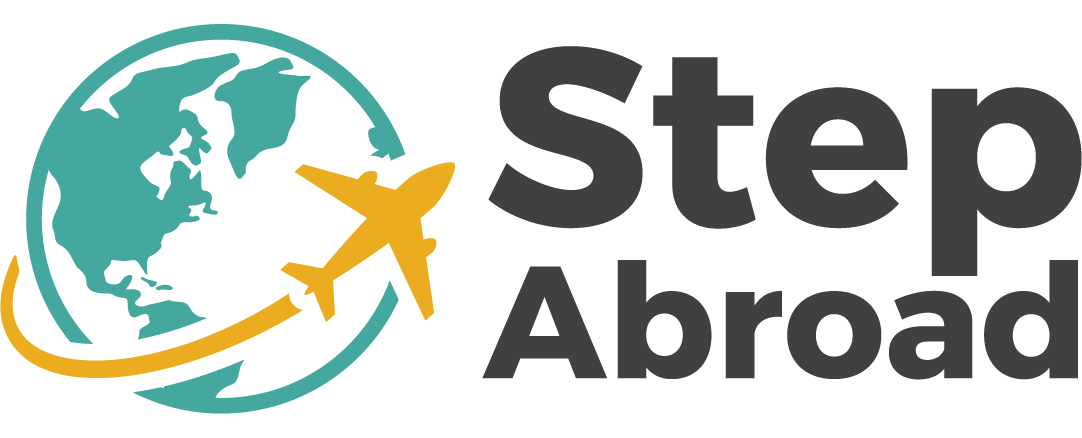The molecular diagnostics market has emerged as one of the most rapidly evolving sectors in the global healthcare industry. With increasing innovation in molecular diagnostic technologies, this market is being driven by a growing demand for faster and more accurate disease detection methods. Valued at USD 20.57 billion in 2024, the molecular diagnostics market is poised for significant growth. It is expected to expand at a robust CAGR of 8.20% from 2025 to 2034, reaching a market value of approximately USD 45.24 billion by 2034. This article provides an in-depth analysis of the molecular diagnostics market, examining trends, drivers, key players, and regional insights.
Market Overview
Molecular diagnostics refers to a group of techniques used to analyze biological markers in the genome and proteome. These technologies are used to diagnose a wide range of diseases, including infectious diseases, cancer, genetic disorders, and cardiovascular diseases. Molecular diagnostics is increasingly becoming an essential part of the healthcare system due to its ability to offer precise, rapid, and non-invasive testing solutions. With the rising burden of chronic diseases and infectious diseases worldwide, the demand for molecular diagnostic tools is growing rapidly. These technologies enable earlier disease detection, more accurate diagnoses, and personalized treatment plans, which are all driving the growth of this market.
Market Size and Share
The molecular diagnostics market was valued at USD 20.57 billion in 2024 and is expected to grow at a steady CAGR of 8.20% from 2025 to 2034. The market is projected to reach a value of USD 45.24 billion by 2034, highlighting the strong demand for molecular diagnostic technologies. The growth is fueled by continuous innovations in diagnostic tools, advancements in genomic technologies, and increasing healthcare expenditure worldwide. North America is expected to hold a significant share of the market, driven by high adoption rates of molecular diagnostic technologies in the United States and Canada. The Asia-Pacific region is anticipated to exhibit the highest growth rate during the forecast period, as demand for advanced healthcare solutions rises across emerging economies.
Get a Free Sample Report with Table of Contents
Market Trends
Rise in Personalized Medicine
Personalized medicine, which tailors treatment based on an individual’s genetic makeup, is a major trend in molecular diagnostics. With the increasing use of molecular diagnostics, doctors can identify genetic mutations and other biomarkers that can help create targeted therapies. This personalized approach is expected to revolutionize the way healthcare is delivered, driving the demand for molecular diagnostic solutions in oncology, genetic testing, and other therapeutic areas.
Advancements in PCR Technology
Polymerase Chain Reaction (PCR) technology has long been the cornerstone of molecular diagnostics, but recent advancements are taking it to new heights. New innovations, including digital PCR and multiplex PCR, enable more precise and sensitive testing. These advancements allow for quicker and more accurate detection of diseases such as infectious diseases, cancer, and genetic disorders, making PCR technology a key driver in the market's growth.
Point-of-Care Testing
Point-of-care testing (POCT) is becoming increasingly important in molecular diagnostics. POCT allows for rapid and accurate testing outside of traditional laboratories, offering convenience and reducing the need for patient travel. These tests are especially valuable in emergency care, rural areas, and developing countries where access to healthcare is limited. The shift towards POCT is expected to continue, with molecular diagnostics playing a crucial role in delivering fast, on-site results.
Expansion in Emerging Markets
Emerging markets, particularly in Asia-Pacific, Latin America, and Africa, are expected to contribute significantly to the growth of the molecular diagnostics market. These regions are experiencing an increase in healthcare investments, rising prevalence of diseases, and a growing need for advanced diagnostic solutions. As healthcare infrastructure improves and awareness of molecular diagnostics increases, demand for these technologies is likely to accelerate in emerging economies.
Market Analysis
Product & Service Segmentation
The molecular diagnostics market is segmented into three primary product and service categories: instruments, reagents & kits, and services & software. Instruments, such as PCR machines, sequencers, and mass spectrometers, are critical components for conducting molecular tests. Reagents and kits, including diagnostic test kits and molecular probes, are essential for performing tests, while services & software are increasingly in demand as laboratories and healthcare providers require integrated solutions for data analysis and reporting.
Test Location Segmentation
The test location category includes point-of-care testing, self-tests or over-the-counter tests, and central laboratories. Point-of-care testing is gaining traction due to the convenience and speed it offers. Self-testing kits are also becoming popular among consumers who prefer to test at home. Meanwhile, central laboratories remain important for high-complexity tests, particularly in larger medical facilities and specialized research centers.
Technology Segmentation
The technology used in molecular diagnostics includes a variety of methods such as Polymerase Chain Reaction (PCR), sequencing, isothermal nucleic acid amplification, and mass spectrometry. PCR continues to be the most widely used method, but newer techniques like next-generation sequencing (NGS) are gaining ground due to their ability to analyze large amounts of genetic data quickly and accurately. Technologies such as chips and microarrays, along with transcription-mediated amplification, are also contributing to market expansion.
Application Segmentation
The molecular diagnostics market serves a wide range of applications including oncology, infectious diseases, genetic testing, pharmacogenomics, and neurology. Oncology is one of the largest application areas, as molecular diagnostics play a critical role in the early detection, diagnosis, and monitoring of various cancers. Other areas such as infectious diseases, genetic testing, and pharmacogenomics also continue to see rapid growth as more advanced diagnostic tools become available.
Regional Insights
North America
North America is expected to hold a dominant share of the molecular diagnostics market, primarily driven by the high adoption of advanced healthcare technologies in the United States and Canada. The region benefits from a strong healthcare infrastructure, significant investments in molecular diagnostics, and increasing awareness of personalized medicine. Additionally, the presence of leading molecular diagnostic companies in the U.S. contributes to the region’s market leadership. The growing demand for genetic testing, oncology diagnostics, and personalized healthcare solutions is expected to sustain market growth in North America.
Asia Pacific
The Asia-Pacific region is anticipated to experience the highest growth rate during the forecast period. Countries such as China, India, Japan, and South Korea are making significant investments in healthcare and biotechnology, which is driving the adoption of molecular diagnostics. The rising prevalence of chronic diseases, the need for advanced diagnostic tools, and expanding healthcare infrastructure are all contributing to the growth of this market in the region. Moreover, as healthcare awareness increases, the demand for molecular diagnostic technologies is expected to rise, making Asia-Pacific a key growth area.
Market Growth
Several factors are driving the growth of the molecular diagnostics market. First, the increasing burden of chronic diseases such as cancer, cardiovascular diseases, and genetic disorders is pushing the demand for advanced diagnostic solutions. Second, the rise of personalized medicine is fueling the need for molecular diagnostics, as these technologies provide detailed insights into genetic mutations and other disease markers. Moreover, the increasing availability of point-of-care testing solutions and advancements in diagnostic technologies are opening up new growth opportunities for the market.
Recent Developments & Challenges
Technological Innovations
Recent innovations in PCR technology, such as digital PCR and multiplex PCR, have improved the accuracy and sensitivity of molecular diagnostics. These innovations are driving growth by offering faster and more precise diagnostic results, particularly in the detection of infectious diseases and cancer.
Regulatory Hurdles
Despite the rapid growth of molecular diagnostics, the market faces challenges in terms of regulatory approvals. Different countries have varying regulations for diagnostic tools, and obtaining approval can be time-consuming and costly. Regulatory bodies such as the FDA and CE mark play a significant role in ensuring the quality and reliability of diagnostic products, but navigating these regulatory processes can be a barrier to entry for some companies.
Increasing Demand for Self-Test Kits
The demand for self-test kits has surged in recent years, driven by consumer interest in at-home testing and the convenience it offers. However, ensuring the accuracy and reliability of these kits is critical, as any errors in testing could lead to misdiagnosis. Manufacturers are working on improving the performance of self-test kits to meet consumer demand while ensuring safety.
Collaborations and Mergers
The molecular diagnostics market is seeing increasing collaboration between key players in the healthcare and biotechnology industries. These partnerships aim to enhance the development of new diagnostic technologies and expand access to molecular diagnostics worldwide. Mergers and acquisitions are also occurring as companies seek to consolidate resources and gain a competitive edge in the market.
Key Players
BioMérieux SA
BioMérieux SA is a global leader in in vitro diagnostics, offering a wide range of molecular diagnostic solutions for infectious diseases, oncology, and other medical conditions. The company’s diagnostic platforms, including PCR-based testing, are widely used in hospitals and laboratories around the world. BioMérieux’s strong focus on innovation and R&D has positioned it as a key player in the molecular diagnostics market.
BD (Becton, Dickinson and Company)
BD is a leading medical technology company that provides a variety of diagnostic solutions, including molecular diagnostic tools. Its molecular diagnostics platforms are used for detecting infectious diseases, genetic disorders, and cancers. BD’s continued focus on advancing diagnostic technologies and expanding its product portfolio has helped strengthen its presence in the global market.
Bio-Rad Laboratories, Inc.
Bio-Rad Laboratories specializes in molecular biology products and diagnostic solutions. The company’s diagnostic platforms are used for a range of applications, including oncology, infectious diseases, and genetic testing. Bio-Rad’s expertise in life sciences and diagnostics, combined with its strong focus on innovation, makes it one of the leading companies in the molecular diagnostics market.
Abbott
Abbott is a multinational healthcare company that provides a range of diagnostic products and solutions, including molecular diagnostic tests for infectious diseases, oncology, and genetic disorders. Abbott’s molecular diagnostic platforms are widely recognized for their accuracy and reliability, and the company continues to innovate in the field of diagnostics to address global health challenges.
Other companies in the molecular diagnostics market include Agilent Technologies, Hologic Inc., Danaher Corporation, Illumina, Inc., QIAGEN N.V., and Thermo Fisher Scientific Inc.
FAQs
1. What iGlobal Molecular Diagnostics Market
s molecular diagnostics?
Molecular diagnostics refers to the techniques used to analyze biological markers in the genome and proteome to diagnose diseases, detect genetic mutations, and monitor treatment.
2. What are the main technologies used in molecular diagnostics?
The primary technologies include PCR, next-generation sequencing, mass spectrometry, and isothermal nucleic acid amplification.
3. How is personalized medicine driving the molecular diagnostics market?
Personalized medicine uses molecular diagnostic tools to create tailored treatment plans based on an individual's genetic makeup, thereby driving demand for molecular diagnostic solutions.
4. What are the challenges facing the molecular diagnostics market?
Regulatory hurdles, high costs, and the need for accurate self-testing kits are some of the challenges impacting the growth of the molecular diagnostics market.
5. Which regions are expected to see the highest growth in the molecular diagnostics market?
The Asia-Pacific region is expected to see the highest growth in the molecular diagnostics market, driven by improving healthcare infrastructure and rising disease prevalence.
Read Our Blog
Top 7 Companies in the Global Portable Medical and Healthcare Devices Market in 2025 - https://bitl.to/4B71
Top 7 Pediatric Medical Device Companies & Manufacturers Worldwide | 2025 - https://bitl.to/4B7w



